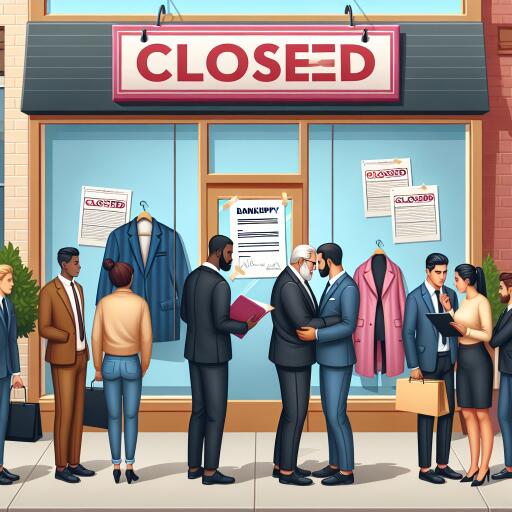Express Files for Bankruptcy, Plans to Close Nearly 100 Stores as Investor Group Looks to Save the Brand
In a significant turn of events for the retail industry, Express has announced that it has filed for Chapter 11 bankruptcy. The company, known for its presence in malls across America and its diverse portfolio that includes its namesake banner, Bonobos, and UpWest, has decided to close 95 of its Express stores as well as all of its UpWest locations. This decision is part of a broader strategy to ensure the future viability of the brand.
The move to file for bankruptcy comes amidst challenges but is seen as a step towards a hopeful future, thanks to a group of investors led by WHP Global. The investor consortium, which also includes Simon Property Group and Brookfield Properties, is looking to acquire most of the company’s retail stores and operations. With closing sales expected to commence shortly, Express aims to maintain normal operations at its remaining outlets, including the ongoing acceptance of orders and returns as usual.
In light of the bankruptcy filing, Express has highlighted its intent to “facilitate” the sale process of its stores and operations to the investor group. Accompanying this plan is a commitment from the potential buyers outlined in a non-binding letter of intent. Furthermore, the company has managed to secure $35 million in new financing from some of its existing lenders, pending court approval, which promises additional financial resources aimed at repositioning the business for profitable growth and maximizing value for all stakeholders.
A notable relief for Express came in the form of a $49 million cash infusion from the IRS, courtesy of the CARES Act. This critical funding is expected to bolster the company’s balance sheet significantly. Express CEO Stewart Glendinning has expressed optimism regarding the company’s direction, emphasizing the ongoing efforts to refine product assortments, drive demand, connect with customers, and enhance operations.
The company, which embarked on its journey in the fashion industry in 1980 under the umbrella of Les Wexner’s Limited Brands, has seen its sales decline over recent years, plagued by debt and expensive mall leases. This financial distress was further highlighted by recent struggles to meet vendor payments, signaling challenges in managing cash flows. Furthermore, the acquisition of Bonobos from Walmart, executed in collaboration with WHP Global for $25 million, was a strategic move during a time when Express’s core business faced significant pressures.
Despite these efforts, the retailer has struggled against a backdrop of declining revenue and a challenging market environment. Neil Saunders, managing director of GlobalData, pointed out that Express’s revenue had fallen by about 10% since 2019, a stark contrast to the overall growth of the apparel sector. He attributed part of the company’s challenges to the casualization of fashion and the rise of working from home, trends that have softened the demand for formal and smart casual wear.
The bankruptcy filing is anticipated to offer Express a much-needed opportunity to realign its operations. It is expected to provide relief from costly leases, many of which are tied to struggling malls, making the company more appealing to prospective buyers. To navigate through this complex process, Express has enlisted the expertise of Kirkland & Ellis as its legal counsel, with Moelis & Company acting as its investment banker and M3 Partners serving as its financial advisor.
As Express works to implement its turnaround strategy, the industry watches closely, hopeful that this once-dominant retail player can find a path back to strength and profitability.
